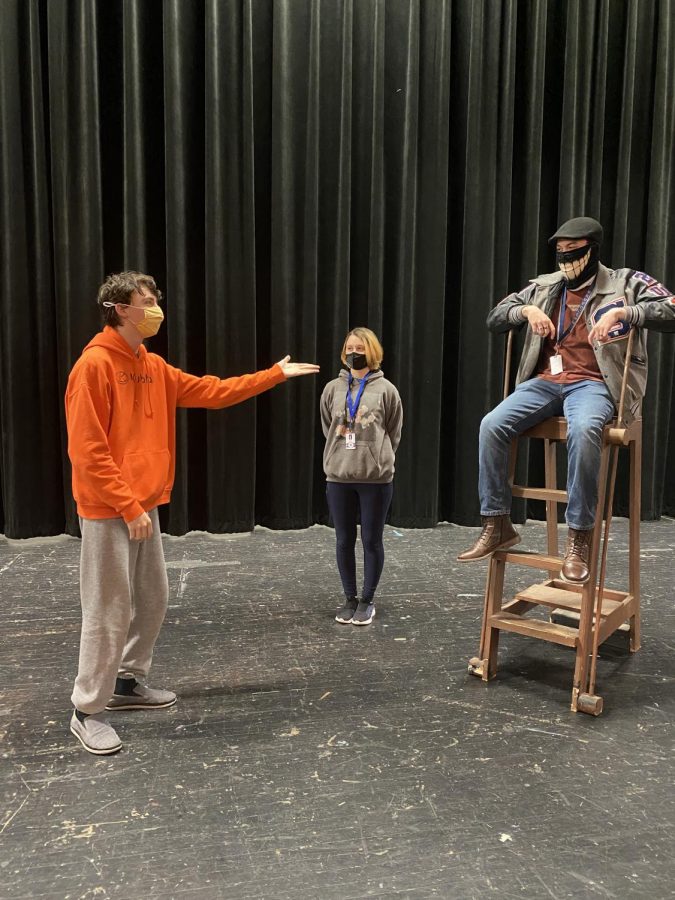One-Act Play adjusts to COVID restrictions
January 25, 2021
Currently theatre is in full swing working on the UIL One- Act Play, “Argonautika” by Mary Zimmerman. This year the process has changed a bit due to the coronavirus but that hasn’t stopped the group from working.
Due to COVID-19, there have been some changes to the usual competition season. In past seasons, the company of the one-act play got to watch all of the shows and perform in front of an audience. This year, students will perform in front of judges and then must leave.
Theatre teacher Libby Rotan said that masks will also be worn throughout the performance and that these rules are subject to change closer to their first competition meet in March.
The play will be judged on acting, how will they tell the story, and all technical elements.
“I think the judges will be looking for inventive ways we can overcome distancing and the things they always look for which is a good clean story, solid acting and moments which are quiet times in a show where emotion can be felt and you can draw the audience in,” Rotan said.
The process of putting on a One- Act Play spans from late November to April, if the play advances to the state meet.
“The process starts with us directors talking about the strengths of our actors and what sorts of shows we would like to do,” Rotan said. “In December if the show isn’t on the approved list we go to the UIL State Theatre board and get it approved as we had to do for ‘Argonautika.’ Shortly thereafter we hold auditions and then we start researching our show. We start staging our show on stage and figuring out all the dynamics of it.”
The show “Argonautika” follows Jason and the Argonauts and their voyage to obtain the Golden Fleece. It is a very contemporary telling of Jason and the Argonauts but still retains methods of Greek storytelling throughout the play.
“The show is created from basically nothing, and we create the story as we go with using whatever we have on stage,” Rotan said. “I also thought that these characters played really strongly for our actors and our technicians are of the caliber that they can do the technical things that this show needs.”
The competition is about telling a story as a unit, and telling a story well is how plays advance, Rotan said.
“My favorite part of the UIL process is seeing our students create so much of the show as a unit and as a collaborative group of people,” Rotan said. “We all work on it as a group and that’s what makes UIL special.”

